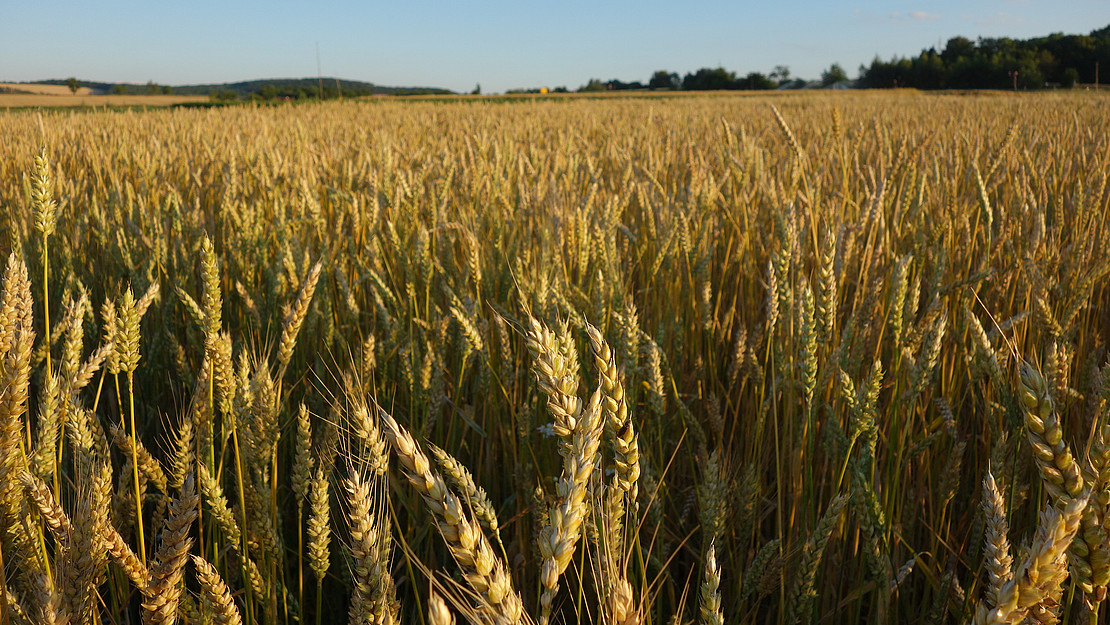This page contains automatically translated content.
"Wheat diversity from the field to the store counter".
 Image: Odette Weedon.
Image: Odette Weedon.Drought, heat, disease, pests - the list of crop risks in cereals is long, and it is likely to get longer as climate change increases its unpredictability. One approach to buffering or reducing stress on crops and thus yield loss is to increase diversity in the field. Modern wheat varieties form uniform stands. Each individual plant is not only externally similar to the others, but also genetically similar. While these varieties are very high-yielding, the individual wheat plants share not only this strength but also their weaknesses. Maximum yields are usually delivered by modern wheat varieties only under good conditions. If extremes or deficiency conditions set in, then failures can quickly occur because the susceptibilities of the individual plants are always identical. Even on less favorable arable sites, the high-performance potential of current line varieties often cannot be realized.
This is where the BAKWERT project, launched in June 2020, comes in with an innovative concept. Instead of genetic uniformity through breeding selection, the population breeding approach focuses more on genetic diversity for higher stress resistance within the wheat stand. Heterogeneous wheat populations - also called "modern landraces" - are based on the intercrossing of several high-yielding varieties. Not only are they good at buffering environmental stress, they also adapt to local environmental conditions through outcrossing and natural selection within the stand. This creates a more stable/resilient system based on genetic diversity, which may not deliver the maximum yields possible under optimal conditions, but can score with less massive yield losses.
Despite proven good growing and baking properties, heterogeneous wheat populations have hardly found their way into practice so far. As part of the BAKWERT project of the University of Kassel, Department of Organic Agricultural Sciences, in cooperation with the Competence Center for Organic Agriculture in Baden-Württemberg (KÖLBW) and the professional association Die Freien Bäcker e.V., ecological value chains consisting of farms, mills and bakeries are being scientifically investigated and monitored over a period of three years. The Institute for Grain Processing (IGV GmbH) will conduct extensive milling and baking trials.
The research project will run until May 2023 and is funded by the German Federal Ministry of Food and Agriculture (BMEL) through the Federal Program for Organic Farming and Other Forms of Sustainable Agriculture (BÖLN). The aim is to use a participatory approach to promote the cultivation, processing and marketing of population cereals. Based on the experience gained, optimization potentials along the value-added stages (cultivation, milling and baking processes) are to be developed together with the participating partner farms. The final results will be communicated in the form of a "Population Handbook" to provide interested practitioners with a guide for the use, processing and marketing of heterogeneous populations - for more diversity from the field to the store counter.
Contact:
Dr. Torsten Siegmeier
University of Kassel
Tel.: 05542 98-1327
E-mail: siegmeier@uni-kassel.de